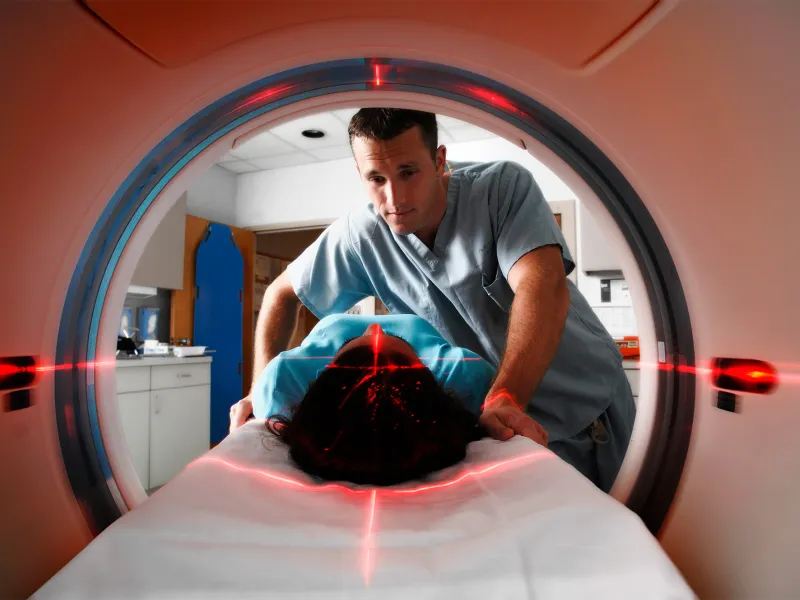
Specialized Scans for Accurate Diagnoses
Nuclear medicine is a specialized area of radiology that uses small amounts of radioactive materials (given either orally or intravenously) to examine an organ's structure and metabolic function. Nuclear medicine assesses how organs and tissues are functioning, whereas other forms of diagnostic scans usually only determine how organs and tissues look.
We use nuclear medicine scans to help our expert providers diagnose diseases earlier, making treatment more effective. These tests can help evaluate the spread of cancer, identify blood clots in the lungs, locate infections and scan organs for abnormalities.
Nuclear Medicine Finds the Answers You Need
- What to Expect
-
Your doctor will provide specific instructions for your nuclear medicine scan, but generally, no preparation is necessary. You may not be able to eat or drink anything starting about six hours before your test.
On the day your test is scheduled, be sure to leave jewelry and valuables at home.
The procedure follows these four basic steps:
- Depending on the area of the body to be studied, you’ll be given a compound either via injection, orally or inhalation.
- The compound travels throughout the body, giving off gamma rays, which show its location in the body.
- Diagnostic equipment detects the gamma rays and records them as flashes of light. These are used to create pictures of the part of the body being studied.
- Your radiologist will assess the function of your organs or soft tissue and provide results to your physician.
Every precaution is taken to ensure the safety of our patients. Radiation exposure is low, as only tiny quantities are used for diagnoses. Radiation exposure is carefully controlled, as our facilities, equipment and materials meet strict safety standards.
- Types of Nuclear Scans Available
-
Our nuclear medicine technologists use advanced technology that delivers quick results so your doctor can begin treatments as soon as possible.
We offer a range of nuclear medicine diagnostic imaging tests, including:
- Renal scans: used to detect disease, damage and malformations of the kidneys and urinary tract
- Thyroid uptakes and scans: used to diagnose disorders of the thyroid gland, the "thermostat" that speeds up or slows down most body functions
- Lung scans: used to detect blood clots in the lungs
- Cardiac imaging: used to study blood flow to the heart (coronary artery disease), check heart function and diagnose a recent heart attack
- Liver and gallbladder imaging: used to help diagnose liver disorders, such as cirrhosis or tumors, and to diagnose gallbladder disease
- Bone scans: used to detect areas of bone growth, fractures, tumors or infection of bone
